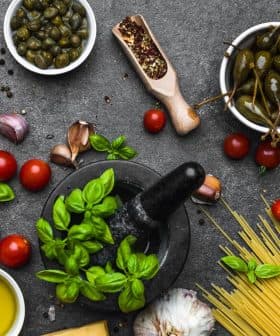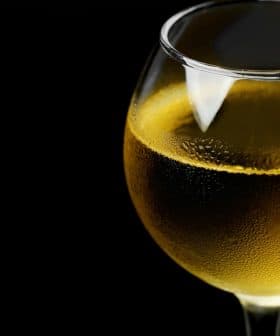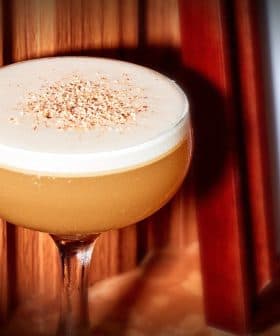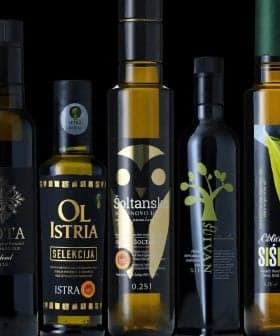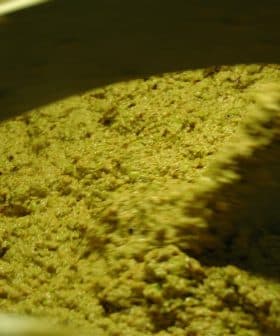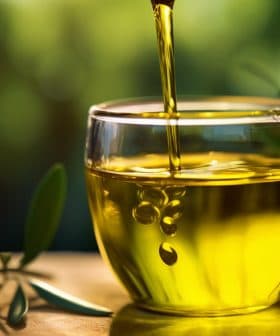On Nutella, Olive Oil and Obesity
The article discusses the contrasting treatment of olive oil and Nutella in Italy, with olive oil being recognized as an important cultural heritage by UNESCO while Nutella faces criticism due to high sugar and fat content. It highlights the importance of traditional Mediterranean diet in promoting health and combating obesity, emphasizing the need for consumers to be aware of their food choices and the impact on their well-being.

Dispatch from the Italian pantry: traditional nutritional values vs. tasty modern treats
Two staples of the modern Italian diet have been grabbing the headlines in Italy lately. The two foods are strange bedfellows but are among the most important products that can be found in every Italian kitchen – olive oil and Nutella. While food making the front page is not unusual in itself, the stories say a lot about the contemporary changes in consumption in Italy, a country that is still perceived internationally as a stronghold of healthy traditions when it comes to eating.
While these two celebrity commodities share a place in the heart of Italians, they occupy different ends of the nutritional and cultural-traditional spectrum. What made them an object of lively discussion is the fact that both substances have been the subject of international legislation passed over recent weeks, but legislation of a very different nature.
As already covered by the Olive Oil Times, UNESCO, the United Nations agency responsible for designating world heritage sites and other aspects of human achievement and history of educational, cultural or scientific value, has recently included a menu for the first time among the category of unique cultural heritage that must be protected and promoted. The diet is the traditional Mediterranean diet, and its fundamental ingredients – foremost among them, of course, is olive oil. Olive oil and the culinary traditions and culture based on it were enshrined in the international covenant – up there with the Colosseum, the Taj Mahal and the Pyramids – as invaluable assets for humankind, part of an Intangible Cultural Heritage that should be protected like a landmark or sacred site.
Just a few weeks earlier, there were scare stories circulating in the Italian media that the very existence of Nutella – the hazelnut-chocolate spread created in Turin that children and adults alike enjoy every morning on their croissants – was being threatened by new European Union anti-obesity legislation. In fact, that legislation only seeks to prohibit the marketing of such high-sugar high-fat foods in a way that seems to make claims that they are healthy. It’s almost as if one product has been declared a saint, while the other has been placed under house arrest!
The Nutella affair provoked scandal and outrage, being greeted almost as an attack on national sovereignty. While, on the other hand, the UNESCO decision enshrining the importance of olive oil, and the traditional Mediterranean diet of which it is the cornerstone, was received with understated pride and relative calm– as if simply a confirmation of what we have all always known: the traditional diet is
healthy; at the very foundation of Mediterranean cultures.
However, the fact that the diet is unchanging and of the ages is precisely what has seen it lose ground – even in those traditional countries like Italy, as in others – to newer eating habits and their repercussions. These repercussions have included a notable increase in the number of people who are overweight or obese. In its 2005 European Health Report, the World Health Organization (WHO), the United Nations agency responsible for health matters, defined obesity as a real epidemic spreading across the whole of Europe where more than half of the adult population is over the threshold of “overweight”, and between 20 and 30 % are clinically obese. What’s more, childhood obesity is on the rise across Europe.
Obesity is defined as abnormal or excessive fat accumulation that presents a risk to health for a number of chronic diseases, including diabetes, cardiovascular diseases, and cancer. Because of the fast rate at which these conditions are spreading across the world, international organizations like UNESCO and WHO are proposing different intervention strategies. Diet and physical activity are two of the most important factors, and they are often very much connected to culinary habits and lifestyle which, rooted in different social groups, represent a heritage of traditions. These define various cultural identities and are able to balance the excesses of an over-globalized, post-modern era. The Mediterranean diet has therefore been given a privileged place among the recommended food strategies, advocating thus for greater use of vegetables, fruit, as well as greater use of vegetable fats – prime among them, is olive oil – instead of animal fats like butter.
Data published recently by the Italian Ministry of Health described a population largely overweight and in many cases obese. The situation in Italy varies from region to region. In Campania, which has one of the worst rates, many initiatives are being mounted aimed at promoting a better lifestyle and diet. Some Italian associations, in line with the UNESCO Intangible Cultural Heritage concept, are organizing programs aimed at reawakening and strengthening the recognition of healthy, high-nutritional-value traditional products that have positive effects on human health.
One of the proposed projects was offering school pupils snacks prepared from traditional Mediterranean recipes, one of which was of the most elemental simplicity — a good slice of fresh bread, with olive oil and salt. The purpose of this was to show the children their cultural roots and, hopefully, to give them something appealing that contrasts to the newer eating habits, which are generally characterized by a poor and monotonous diet, lots of calories, animal proteins, saturated fats.
Among vegetable fats, oil, and especially olive oil, because it’s an ancient and typical product that has always been part of the Mediterranean area, has rightfully occupied an important place in cultural politics. Exporting olive oil and the best lifestyle of the areas in which it’s produced can be, if well utilized, one of the factors used to fight obesity, overeating and lack of movement but also, in a more general sense, can help in promoting health as defined the World Health Organization – a state of complete physical, mental and social well-being and not
merely the absence of disease or infirmity.
As I discussed in another article for Olive Oil Times, in the fantasy world of commercials, the symbolism of olive oil is strong. In that world, olive oil is associated to ancient and fundamental concepts like soil, tradition, being genuine, friendship, cordiality. Olive oil is described using a reality that is very hard to find nowadays – a dream world with an endless countryside of uncontaminated fields, paradisiacal valleys and humble, happy people portrayed in contented scenes of everyday life, Mediterranean women with their hair collected under a veil, rosy-cheeked and robust, busy collecting olives.
But as we know, that image is far from the reality of today’s massive olive plantations that spread over vast swaths of the Mediterranean landscape and elsewhere. The symbolic power of the olive and its oil is tied up with the power and strength of a past which technology has certainly improved upon but also canceled out. As olive oil has become a global commodity, its production has been industrialized and expanded almost beyond recognition, even in Italy.
Such change in Italy has not only been seen on the production side of the equation. Habits and behaviors have also started to change on the consumption side. While olive oil still undoubtedly occupies an almost sacred space in the chapel of the Italian home, the kitchen, modern generations of Italians – like others across Europe – are eating fewer and fewer of their meals at home. Researchers on food choice motivation at the University of Rome “La Sapienza” looked at a group of average students. The results revealed how their food choices are influenced by emotivity, imaging and susceptibility to advertising and commercial messages, showing that the greatest consumption desire was stimulated by ready-to-eat, pre-prepared snacks. Food scientists conclude that people eat these easy modern products mainly not because they are hungry but, rather, because of hedonistic, compulsive or emotive behavior. Such non-traditional snacks are generally very high in calories, rich in sugar and saturated fats and rich in animal proteins. They taste good. The palatability of these snacks is high and at the end of the day they are the cause of mistaken caloric intake.
Why then, if the nutritional information is so clear, don’t we stop eating what’s bad and start eating what’s good? The answer can be found in two words: taste and palatability. These two components in prepared food are mainly given by its fatty and sweet components. The function of our brain that controls hunger in absence of a real need of food is governed by hedonism. This complicates a lot the situation because in this case, the factors leading to a certain choice are many and complex. Some researches show that hedonism wins over the cognitive factor. Disorderly consumption of calories is the fruit of compulsion in repeating the use of products that generate, even for a short time, physiologic and psychological well-being; something that relaxes from the anxiety of consuming, chewing, biting something tasty – a veritable mini circuit of addiction, which is hard to break.
It is thus necessary for consumers to become aware of and responsible for the processes of his own choices, wondering about his motivations, and analyzing the caloric effects and nutritional components. For instance: it is true that olive oil is healthy, but we still have to keep in mind the calories! A quantity of 10g of extra virgin olive oil, known as the “well-being quantity” in Italian – which is equivalent to a soup spoonful – contains some 90 kcal. Current guidelines suggest a healthy daily consumption of olive oil of around 2 – 3 of these units and total weekly intake of 200g.
Eating habits are as important as every other human behavior for which we are actors and witnesses of our own life. We should act pushed not only by our own pleasure and emotion but also by the knowledge and the rationality that are the structure of the ability or inability of making all kinds of decisions throughout our lives. If governmental guidelines, laws or proclamations are to be worth anything, they must be accompanied by educational efforts to bring home the message of how and why these things matter, and how they can have an impact on our own lives – in the Mediterranean and beyond. In the space between marketing and reality, there is room for intervention that helps inform and guide consumers to make better-informed choices.
Hopefully, the cultural exchange between countries where the Intangible Cultural Heritage of the Mediterranean diet was born and other countries can also help them to adopt nutritional policies that identify olive oil as a fundamental element of a healthy diet. This is important especially for children because if a certain eating habit is introduced early in life, it is then capable of positively influencing their approach to food in adulthood. To come back to the roots of the olive in Mediterranean culture, let us recall what is said about it in the Talmud: “it is easier to grow an olive tree in this land than to raise a child”. It seems that the more progress we make, the more we have to learn from looking back at our roots, and moments like this are useful for us to take stock of our habits and their value.


